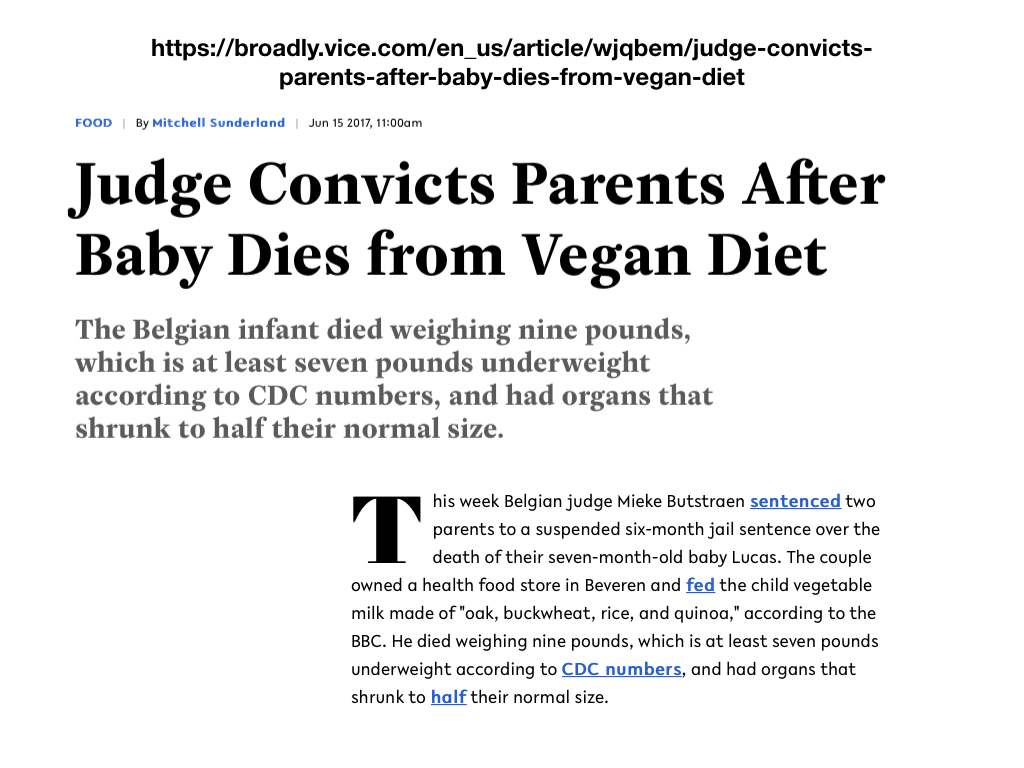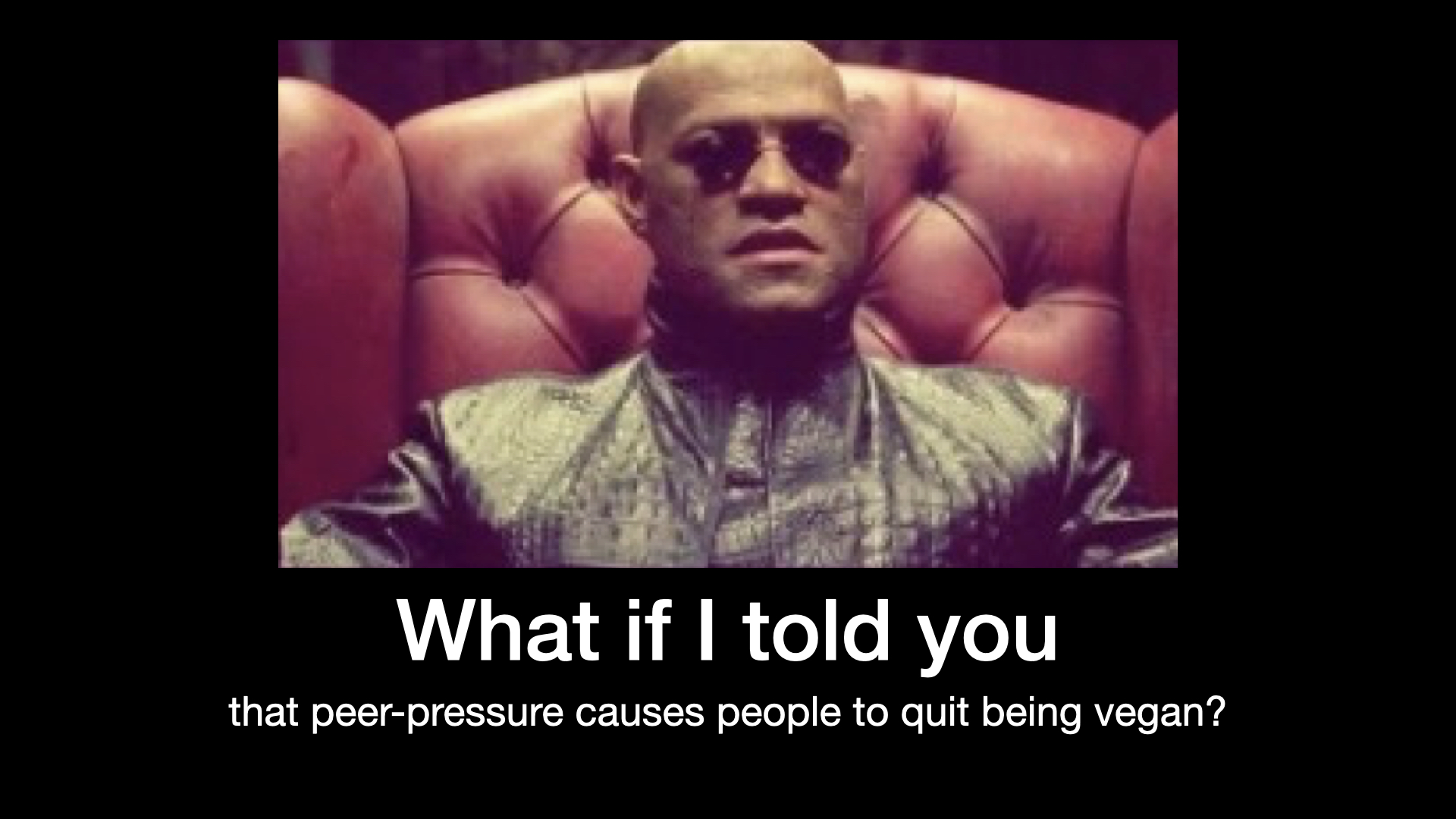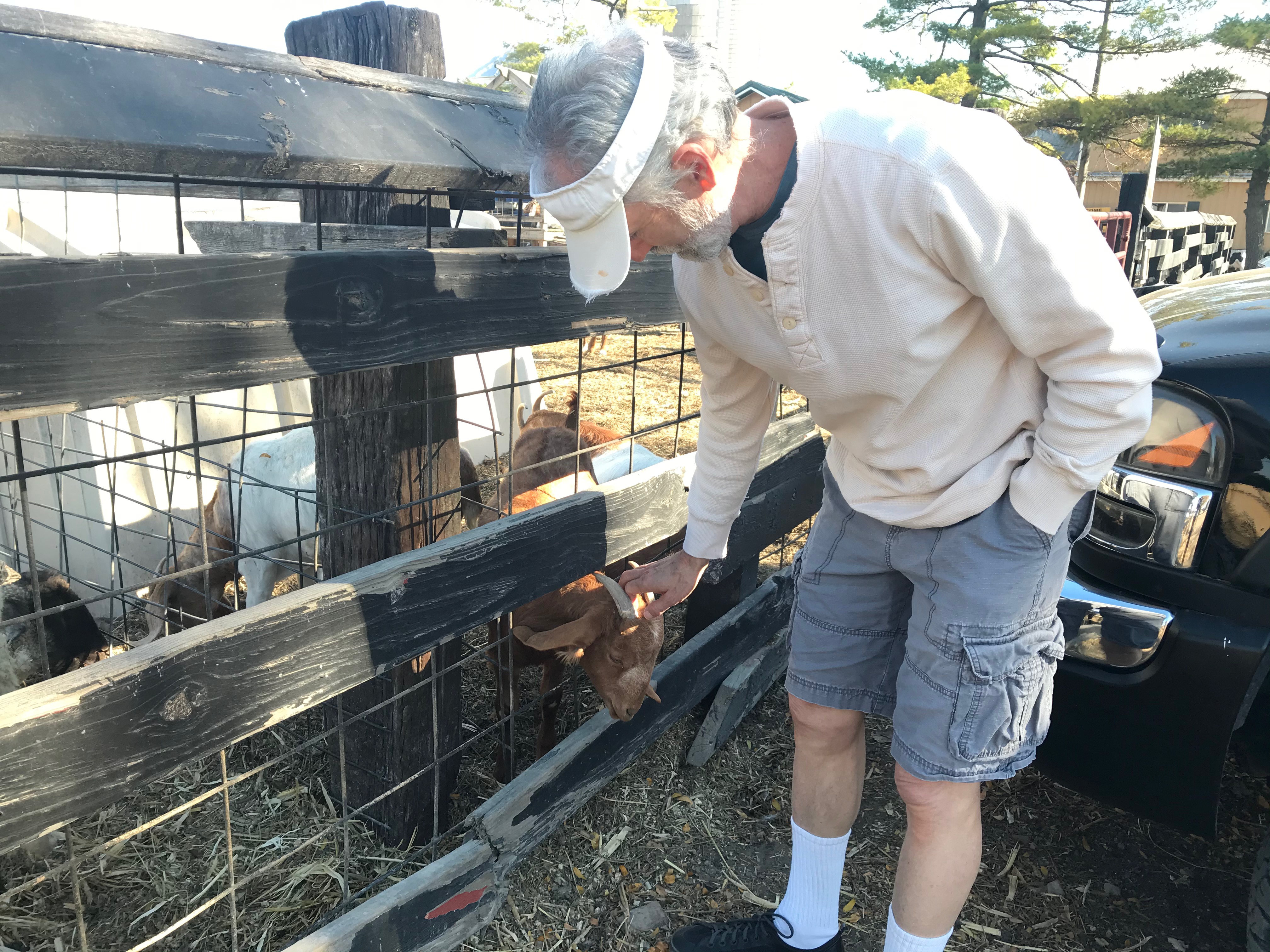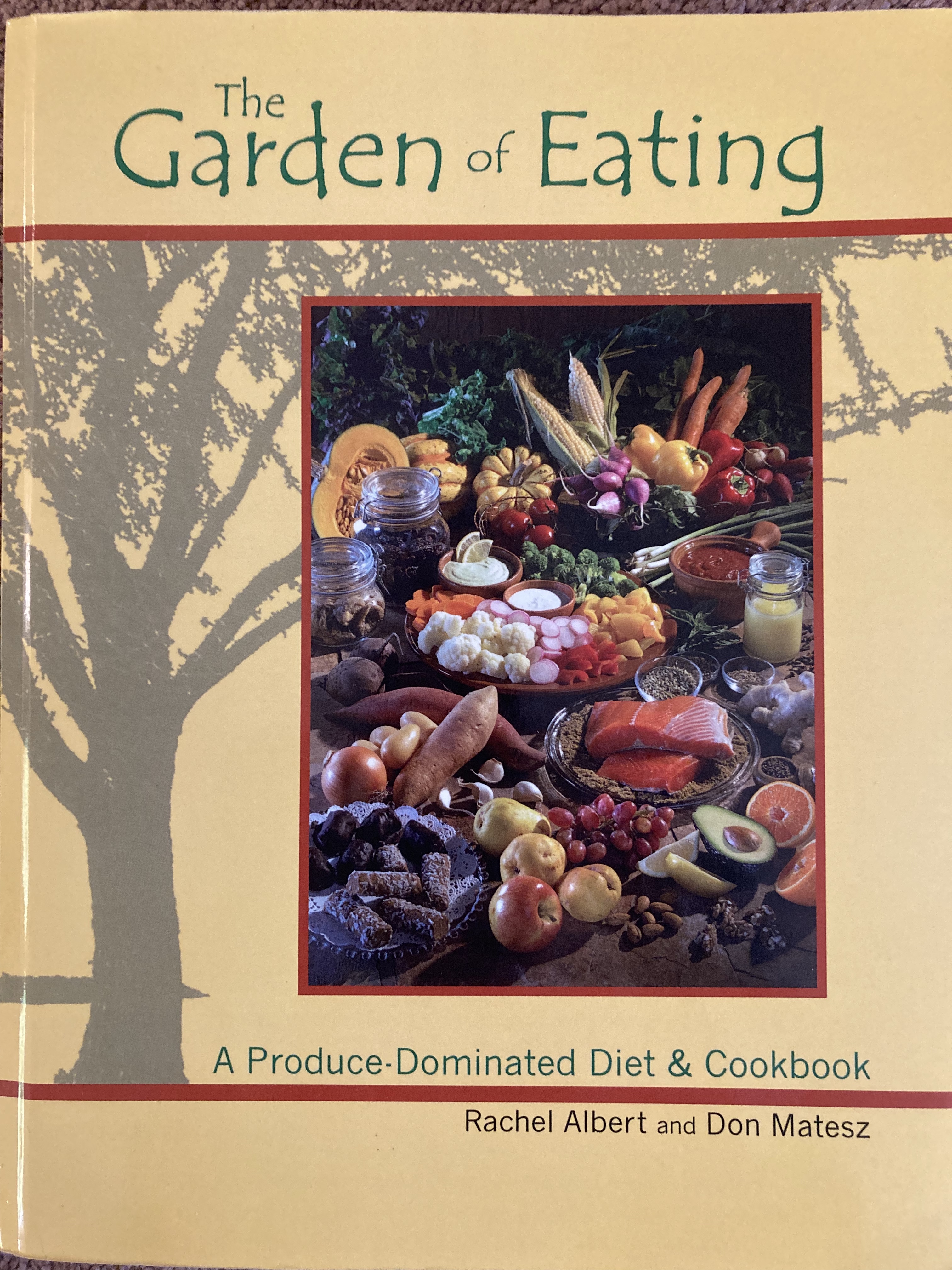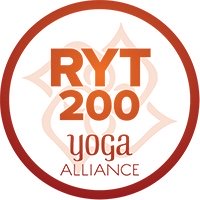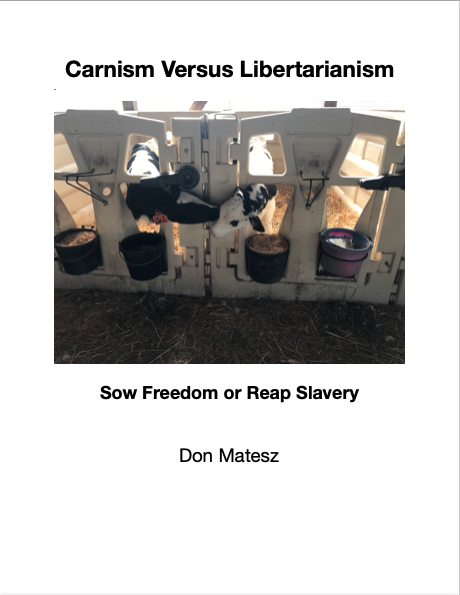Veganism Is Self-Contradictory and Immoral
No, it is not.
Update 11/8/2022: The original essay attempting to prove that veganism is self-contradictory was (is) a pathetic attempt to "justify" meat-eating. I made multiple logical mistakes. I have decided to leave it up for a period of time, but with my own rebuttal in bold text. Below, you will find the original faulty argument in regular text, and my rebuttal of that argument inserted in bold text.
Here's the first part of the faulty argument:
In this article I will prove that veganism (vegan ideology and ethics) is inherently self-contradictory and immoral.
Veganism – vegan ideology or ethics – maintains that we should have the same rules for treating animals as we have for treating other humans because, they claim, there exists no morally significant difference between humans and other species. Humans and non-humans are "equal" because they suffer equally or because they are equally "subjects of experience."
But if there is no morally significant difference between humans and other species, if we are all moral equals, then there exists no basis for holding humans to a different standard than other species.
For example, since both humans and wolves are subject to hunger and suffering from nutritional deficiencies, if you allow wolves to kill non-wolves for food (to satisfy hunger and nutritional requirements), and there exists no morally relevant difference between humans and wolves, then you must allow humans to kill non-humans for food (to satisfy hunger and nutritional requirements). Otherwise you are granting wolves a right to kill for food while denying it to humans, therefore making the two species morally non-equivalent.
Alternatively, if all species are equal, you must hold all species to the same standard, and prohibit not only humans but also all other species from harming or killing other species to obtain food. In this case you will be required to take extreme measures to control the behavior of non-human species. You will be forced to maintain that it is morally wrong for mosquitos to feed on the blood of non-mosquitos, and take steps to prohibit mosquitos from sustaining their lives in this fashion.
In short, if humans and non-humans are moral equals, then humans have as much right to kill non-humans for food as any other species has to kill for food. If you deny that humans have the same rights as other species, then you are implicitly stating that humans are not moral equals of other species. Thus veganism is self-contradictory: It maintains that humans and non-humans are both morally equal and morally unequal.
Moreover, if humans are morally equivalent to non-humans, then humans have as much right to favor humans as lions have to favor lions, and wolves to favor wolves. If you allow wolves to favor wolves but claim humans should not favor humans, once again you are establishing a moral inequality between wolves and humans.
In fact, it is Wolf Nature to favor wolves, Lion Nature to favor lions, and Human Nature to favor humans. This was/is an absolute requirement for success as a biological entity. Any species that valued other species more than itself would go extinct pronto. You can’t change Nature by choice.
Rebuttal: That the argument above is hogwash, in which I confused sentience, which by Nature confers moral rights, with moral agency, which by Nature confers moral responsibility.
I should have known I was wrong because I myself have argued and proven that the awareness of every one is but a limited expression or aspect of One Infinite Self consisting of Awareness. I plainly acknowledged that humans and non-human animals have (or are powered by) the same awareness. I plainly stated that there is no difference between the awareness of any animal and the awareness had by any human, and emphasized the fact that all animals are sentient individuals (some-one). This being the case, all humans and animals are subjects of pain and suffering loss, which means that they are all equally subjects of violence (violation of private property) and therefore subjects of moral concern.
Simply, all sentient beings by Nature have a private life. This is proven by the fact that each has exclusive right (power) to perceive and act. That is, every one has exclusive access to an inner life and the ability to act on and of his own accord.
It is a fact that no human can access and actually possess (own) the inner life of any other animal. That is, no human can assume full possession of the inner life of any animal (experience the life of that animal from the inside perspective). This proves that Nature (God) has made every animal a sovereign individual with a life of its own.
As soon as we fully acknowledge the fact that every animal has a life of its own, we must treat that animal with the same moral respect we would have for any human being.
First of all, we have to admit that it is impossible to actually "own" any other animal's life. You can pretend that you own an animal and have made it your property, by putting it in a cage (prison) to restrict its movements, but you never actually own (possess) the animal because you can't demonstrate authority and control over its inner life and actions.
Let me clarify. A property is a characteristic of some thing. For example, by Nature a cow has (owns, possesses) various properties that make it, first, a cow, and secondly, a specific cow, an individual distinct from other cows. The physical and mental properties that make a cow a cow are quite different from the properties that make a human a human.
Now, by Nature, every animal possesses (owns) specific properties, among them being life, native property (body), liberty and a pursuit of happiness. That being the case, no moral agent has a right to take that life from any animal.
Realize that this is exactly the reason that human slavery is immoral: Although someone can pretend to own another human, as a matter of fact no human can actually own the private life, liberty and property of another human. You can put the slave in a cage (prison) and you can use coercion to force the slave to behave as you command, but you can't actually live the life of the individual you have enslaved, because Nature (God) has granted every sentient being exclusive rights to his own private life and properties (body, mind, etc.).
Moral agency consists of the ability to understand and act on moral principles. In the argument above I basically made the error of stating that animals have no moral rights because they do not have moral agency. This was a stupid and wrong argument because it would equally apply to at least three groups of humans, namely infants, mentally retarded people, and demented elders.
All humans are equal in their sentience, making all humans subjects of moral concern. However, not all humans have moral agency; infants, mentally retarded people, and demented elders are not equal to healthy adult humans in respect of moral agency.
Thus, it is correct and not contradictory to say that infants are both morally equal to and morally unequal to adult humans, because the equality lies in being equally sentient in regard to pain and loss of life, while the inequality lies in moral agency.
In my faulty argument above I wrote: "Thus veganism is self-contradictory: It maintains that humans and non-humans are both morally equal and morally unequal." But I came to this conclusion by a logical error of equivocation; I used the term "equal" with two different meanings.
Animals are equal to humans in respect of sentience (awareness), which makes animals equal to humans as subjects of moral concern. However, animals are not equal to humans in respect to moral agency, because some humans are capable of moral agency whereas no animals are so capable.
Thus, there is no self-contradiction involved in stating that animals are both morally equal to humans in respect of being subjects of moral concern and morally unequal to humans in respect of being moral agents.
Further, my argument appears to make moral agency a condition of qualification for being a subject of moral concern. This is a ridiculous argument. If anyone maintains that only moral agents are owed moral concern, then he will have to conclude that healthy adult humans have the right (are morally right) to use infants, mentally retarded people, and demented elders as food because they have no moral agency.
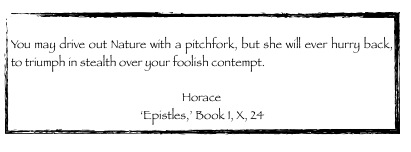
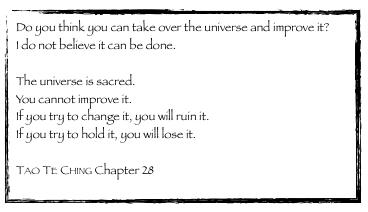
Now back to the original faulty argument:
Veganism Contradicts Itself
In an attempt to escape this bind inherent in veganism, the vegan ideologue will typically say that we can hold humans to a different standard because humans can make choices other species can’t make. For example, it is claimed that we can choose to not eat meat whereas a wolf can’t choose to not eat meat.
As an aside, I am aware that some people who advocate plant-based diets on ethical grounds deny that humans have free will. Sam Harris is an example. However, if you say humans can choose what to eat, whereas wolves can’t, what are you saying if not that humans have free will but wolves do not?
Moreover, if you maintain that we have no free will, i.e. no choice in the matter, then what is all this talk of altering our choices? We may be as compelled to eat animals as the wolf.
In fact, attempting to convince humans to change their behavior by choice is an implicit admission of a belief that humans have free will and are not for example biologically compelled to eat meat.
To the point: this defense of veganism smuggles in a morally relevant difference between humans and non-humans. In so many words, veganism (ideology and ethics) asserts that humans not only are different from, but morally superior to other species, because, the vegan claims, we can make choices to not harm other species, whereas other species can’t make a choice and are compelled to harm other species for survival.
Let me clarify: Since the vegan ideology maintains that not harming or killing is a morally superior choice, the logically consistent vegan must conclude that a human who adheres to vegan ideology is morally superior to all other animals and especially to non-vegan humans. Thus, despite the vegans' protestations to the contrary, their own belief system forces them to conclude, consciously or not, that an adherent to veganism is morally superior to non-vegans.
But most importantly for my argument, if you require humans to adhere to a moral standard different from the standard applied to wolves, then you are ipso facto maintaining that humans have a moral status different from non-humans.
But if humans are different from other species in this morally relevant way, then we are not obligated to treat other species according to the same rules we apply to humans. To a non-vegan, this very significant difference between humans and other species warrants treating humans differently from other species.
Now, it is obvious that veganism admits that this morally significant difference exists, because it as a matter of fact treats humans differently by holding us to a different moral standard than the standard applied to non-humans.
Therefore, veganism is inherently self-contradictory. It requires two contradictory propositions, namely that humans are both morally equivalent to other species (hence not worthy of special treatment), and morally non-equivalent to other species (worthy of special treatment – duties – because capable of choices that non-humans can’t make).
Rebuttal: As I discussed in my rebuttal above, there is no contradiction here. Humans are morally equivalent to other species of sentient beings in respect of all being in possession of a private life and subject to loss and pain. Some ––and now I emphasize some–– humans are morally non-equivalent to other species in respect of being moral agents.
Simply, Nature holds moral agents to a higher moral standard than sentient beings who are incapable of moral agency. A moral agent can understand the difference between right and wrong and choose right action rather than wrong action. If a moral agent chooses wrong action rather than right action, then he is morally culpable.
Moral agents are subject to the law "as ye sow, so shall ye reap." Briefly, what goes around, comes around. If you look around human civilization objectively, you will see that the vast majority of humans are subject to the same kind of treatment that we inflict on the animals we eat. The "rulers" treat the common people as so much livestock, "cash cows" who are "milked" for every thing we are worth by taxation and inflation, sacrificed in wars, and defrauded with lies. Truly the "rulers" treat the common man just as the common man treats animals held as livestock. We take freedom from others, so our freedom is taken from us.
Here's the sharp point: If you believe that you have the right to buy, sell, enslave, and kill various animals for your food and personal pleasure because you can outwit (deceive) them, then you have to also agree that anyone who can outwit (deceive) you also has the right to buy, sell, enslave, and kill you, to use you for food and personal pleasure.
In other words, if you think your mental might gives you the right to exploit animals, then you have agreed to live by the standard "might makes right," and have forfeited any objection to being exploited by anyone who has more might than (or can deceive) you. By your own actions you have agreed that it is right for you to be exploited by others who believe that they have the right to exploit you because they are superior to (and can outwit) you, just as you believe it is right for animals to submit to your domination.
Basically, if you exploit sentient beings for your own benefit, while also object to being exploited by others, you are a hypocrite! You can't claim a right to be left alone when you are not leaving others alone.
Indeed this is what occurs in human civilization. Whether "elected" or not, "rulers" or "lawmakers" ––collectively called "government"–– are deemed to be morally superior to other people, and not only they but most people believe that they have the right to commit extortion and theft (via taxation), coercion, murder and human sacrifice (via war and police actions), and fraud in the course of "governing" others. "Rulers" and "elites" basically hold a population as slaves, for the benefit and enrichment of the "rulers" and "elites" (which include the banks and other corporations that have captured "rulers" through bribery).
When I realized that if I believed that I had the right to use and eat animals for my own food and pleasure because I possessed the ability to outwit them, then I could not object to "rulers" and "elites" using me as livestock without self-contradiction, I had two choices: either 1) agree that I have no right to object to being exploited by my alleged "superiors" or those who might outwit me; or 2) stop exploiting animals, so I could free myself from hypocrisy and have a legitimate claim to freedom from exploitation.
Sri Dharma Pravartaka Acharya presents the arguments of Sanatana Dharma in favor of moral concern for animals in this video:
Acharya maintains that all anti-vegetarian arguments make one central mistake, that being confusing moral agents with objects of moral concern. As I have already stated, this is true of my argument that veganism is contradictory. Essentially I argued that since animals do not have moral agency (can't act on moral principles) they do not qualify to be objects of moral concern.
This argument clearly falls apart when confronted with examples of humans that can't exercise moral agency. Fetuses, babies, mentally disabled children and adults, and elders suffering from dementia are all examples of humans that can't exercise moral agency, yet we consider them objects of moral concern. Why do we have moral concern for these humans, despite the lack of moral agency? Because they are conscious beings and suffer. Each human is not just something, but some-One.
Cows, chickens, pigs, lambs, goats and other animals raised for meat all lack moral agency but this does not mean they do not suffer. On the contrary it is obvious that they do suffer. This is due to their all having sense organs and consciousness. Each animal is some-One.
Moreover, many of the animals we eat ––including cattle and pigs–– have greater cognitive capacity and agency than a human fetus or infant.
Therefore we owe every animal (every sentient being) the same respect given to every baby, mentally disabled person, or elder suffering from dementia. Since there is no morally relevant difference between the animals we eat and humans in these categories, and we know it is wrong to eat any of those humans, we must conclude that it is also wrong to eat any sentient being.
Morality is the foundation of spirituality. No-one who abuses, enslaves, and kills other sentient beings for personal pleasure or profit can correctly claim to be a freedom-lover or spiritual person.
|
“For the followers of true spirituality, all living creatures are considered to be worthy of respect, compassion and ethical concern, regardless of the temporary bodily form they may currently have. To the true yogi, a cow, and elephant or a tree is as much an eternal living spirit (atman) as is a human being.” Living Dharma: The Teachings of Sri Dharma Pravartaka Acharya |
RESUMING OLD ARGUMENT: Thus, veganism is wrong in both meanings of that term: false, because not aligned with Nature (Truth, Reality), and immoral because it maintains that some humans – allegedly vegan "authorities" – have a legitimate right to use violence or threat thereof to coerce or force other humans to behave in allegedly "preferable" ways.
Morality and ethics are applicable only to human society, to regulate human relationships and establish a harmonious human community. Morality is inherently reciprocal; I agree not to initiate violence against others only so long as they agree to and actually do abstain from violence against me. Violence includes theft, coercion, fraud, trespass (including sexual trespass, i.e. rape), assault and murder. However, if someone violates me, s/he forfeits status as a moral equal, and I claim my natural right to use whatever force necessary, up to and including lethal force, in self-defense, to stop the perpetrator from violating me. Children and other dependents are protected as members of a living family or community. For example, attacking a child is attacking the child's parents, grandparents, siblings and every other living person who cares for that child. (A child is a biological re-presentation of his/her parents, which is why healthy parents love their children as much as they love themselves.)
Animals can't agree or disagree with such a social contract so they can't participate in the human moral community as equal agents. Humans do not have moral obligations to other species because other species can have no moral obligations to humans.
Like every other species, we not only have the right but the duty to regulate our behavior towards non-human species not for the benefit of those species, but for the benefit of humans and human communities. For example, we should preserve endangered species and the various habitats not primarily for the benefit of other species, but because we as a matter of fact need those species to sustain an ecosystem that will sustain humanity.
Veganism is a form of pathological altruism aimed at destroying humanity – or a particular ethnic group – in subservience to non-humans. Veganism asserts that some humans – vegans – are free of error and evil tendencies and therefore qualified to tell the rest of us what we should do. As I have shown, veganism is neither free from error nor from evil tendencies. Veganism is most dangerous because it convinces vegans that they are morally superior to other humans especially if they are willing to kill humans – even their own children – to "save animals."
Rebuttal: On the contrary, it is not veganism but carnism that is wrong in both meanings of that term.
Carnism is the belief that it is necessary to enslave and kill animals in order to sustain human health and life. Carnism is factually incorrect for two reasons: 1) It has been abundantly proven that it possible to sustain human health and life without enslaving and killing animals and eating animal products; and 2) It is based on the false proposition that animals are or can be owned (property of) humans.
Carnism is morally incorrect because it involves taking life, liberty and property from sentient beings, each of whom by Nature's order possesses a life of his own. That is, it involves committing murder, assault, rape, coercion, and fraud against sentient beings who are not properties of human beings.
The fact that some vegan parents neglect their children is no argument against vegan ideology or diet. Hundreds of meat-eating parents also neglect and kill their children.
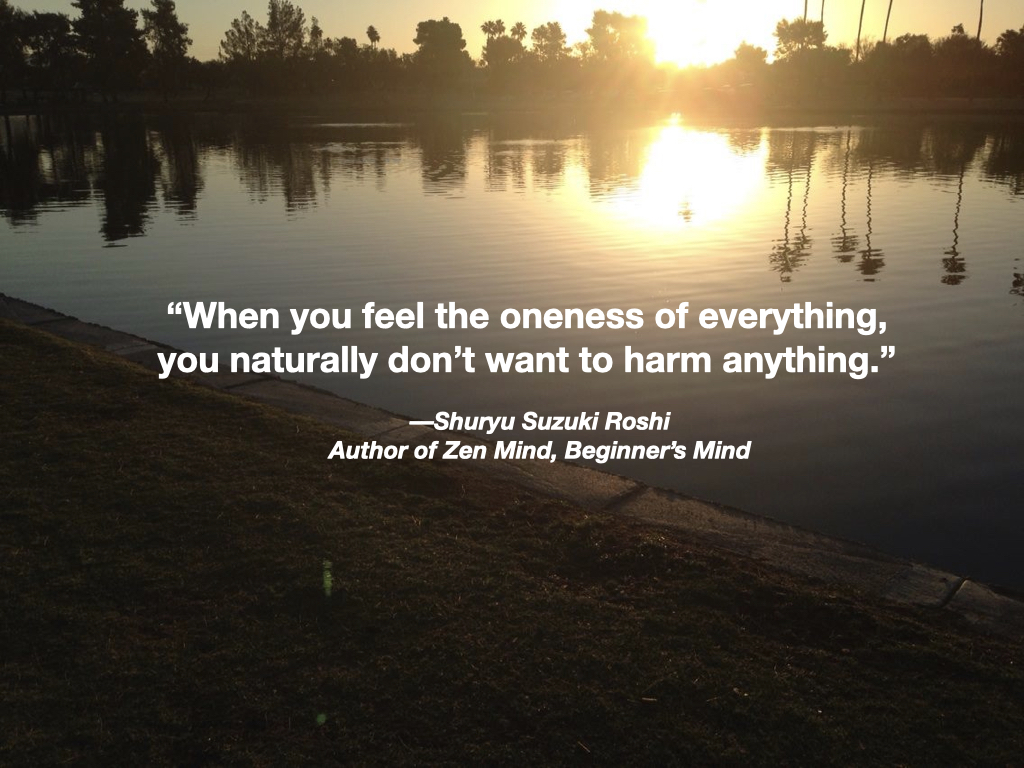
As stated above, like many others, when I was eating animal products, I wanted to believe that I had the right (was morally right) to eat animal products, so I tried to prove that I had that right. My argument was nothing but self-justification or rationalization.
Unfortunately it is nearly impossible for anyone to engage in some behavior and simultaneously acknowledge or agree that the behavior is morally wrong. The mind does not tolerate self-contradiction, so if a meat-eater is confronted with the carnage and moral contradictions inevitably associated with it, in order to avoid the pain of cognitive dissonance, the meat-eater has only two choices: either quit eating meat, or come up with some justification and rationalization for meat-eating.
NOTES
1. Haddad EH, Tanzman JS, “What do vegetarians in the United States eat?,” Am J Clin Nutr 2003;78(3):626S-632S.
2. Herzog H, “84% of Vegetarians and Vegans Return to Meat. Why?” Psychology Today 2014 Dec 2.
Recent Articles
-
High Protein Chocolate Tofu Pudding
Jul 01, 24 12:41 PM
A delicious high protein chocolate tofu pudding. -
Vegan Macrobiotic Diet For Psoriasis
Sep 05, 23 06:36 PM
Vegan macrobiotic diet for psoriasis. My progress healing psoriasis with a vegan macrobiotic diet. -
How Every Disease Develops
Aug 04, 23 06:22 PM
How every disease develops over time, according to macrobiotic medicine. -
Why Do People Quit Being Vegan?
Jun 28, 23 08:04 PM
Why do people quit being vegan? How peer pressure and ego conspire against vegans. -
Powered By Plants
Mar 16, 23 08:01 PM
Powered By Plants is a book in which I have presented a lot of scientific evidence that humans are designed by Nature for a whole foods plant-based diet. -
Carnism Versus Libertarianism
Dec 30, 22 01:55 PM
Carnism Versus Libertarianism is an e-book demonstrating that carnism is in principle incompatible with libertarianism, voluntaryism, and anarchism. -
The Most Dangerous Superstition Book Review
Nov 15, 22 08:46 PM
Review of the book The Most Dangerous Superstition by Larken Rose. -
Plant-Based Diet Is Best For Health Protection: Meta-Review
Oct 17, 22 11:22 AM
A plant-based diet is best for health promotion according to a meta-review of more than 300 reviews published 1950-2013.
